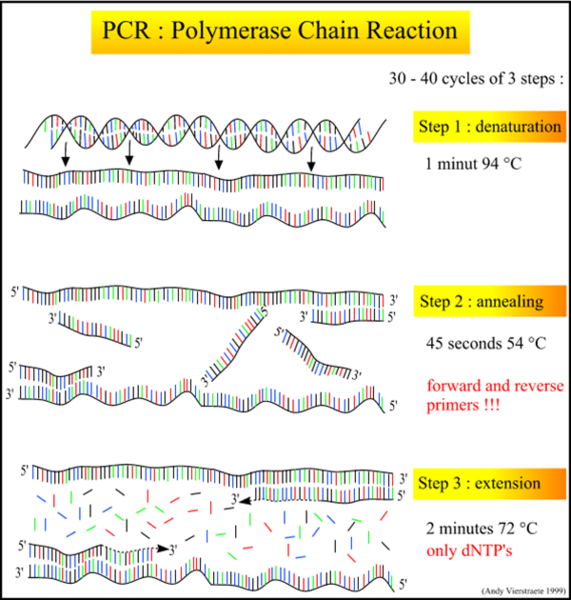PCR, or the polymerase chain reaction, is an area of biochemical technology which is finding its use increasing all the time. PCR works by magnifying regions and sections of DNA and applying the necessary components to create duplications. PCR’s ability to accentuate strands of DNA which may be too small or too few means that its use can be applied to many situations which otherwise may have been unobtainable under ordinary circumstances. This ability to ‘replicate’ DNA sequences to whatever amounts are needed is one of the key factors that make PCR the vital tool it is.

Since its inception in 1983, the rise in the use of PCR has been both dramatic and emphatic. This revolutionary tool has firmly taken its place amongst the arsenal of techniques we now have at our disposal and PCR’s versatility is a key reason for this. Both biological and medical research labs utilise PCR in tasks including gene studies, studies of hereditary diseases, phylogeny and identifying genetic fingerprints. PCR’s core aptitude in DNA cloning is making these studies possible and its popularity is well-document with biochemists Kary Mullis and Michael Smith even receiving the Nobel Prize in Chemistry for their pioneering work in PCR.
PCR’s widespread use encompasses much of genetic analysis and has had a profound effect on what is achievable with modern-day technology.
One area of medical studies that has benefitted from PCR is transplantation of organs. PCR has a successful history in being utilised in tissue typing and suggestions of rapidly increasing the use of the technique is a hot topic amongst medical authorities. Genetic testing is another area of medical studies which has greatly benefitted from PCR. Studies, particularly in the area of hereditary diseases, have relied on PCR as a way of sampling specimens and testing for mutations and diseases.
PCR has also had a profound influence on studies into infectious diseases such as the Human Immunodeficiency Virus, more commonly known as HIV. PCR has lined the way for breakthroughs in infections being picked up on earlier, namely by blood being able to undergo direct screening.
Another benefit of PCR is testing is not only restricted to humans. Both wild and domestic animals can be examined and, in some cases, epidemics have been identified through the analysis procedure.
Undoubtedly, PCR has become an indispensable tool for biochemists and with technology advancing all the time, the boundaries of what is possible for PCR are able to be continually pushed to allow it to sustain the rapid growth it has enjoyed since its inception.
Joseph Jessop writes on DNA analysis tool, written for Primer Design Ltd
PCR: An Indispensible Tool

